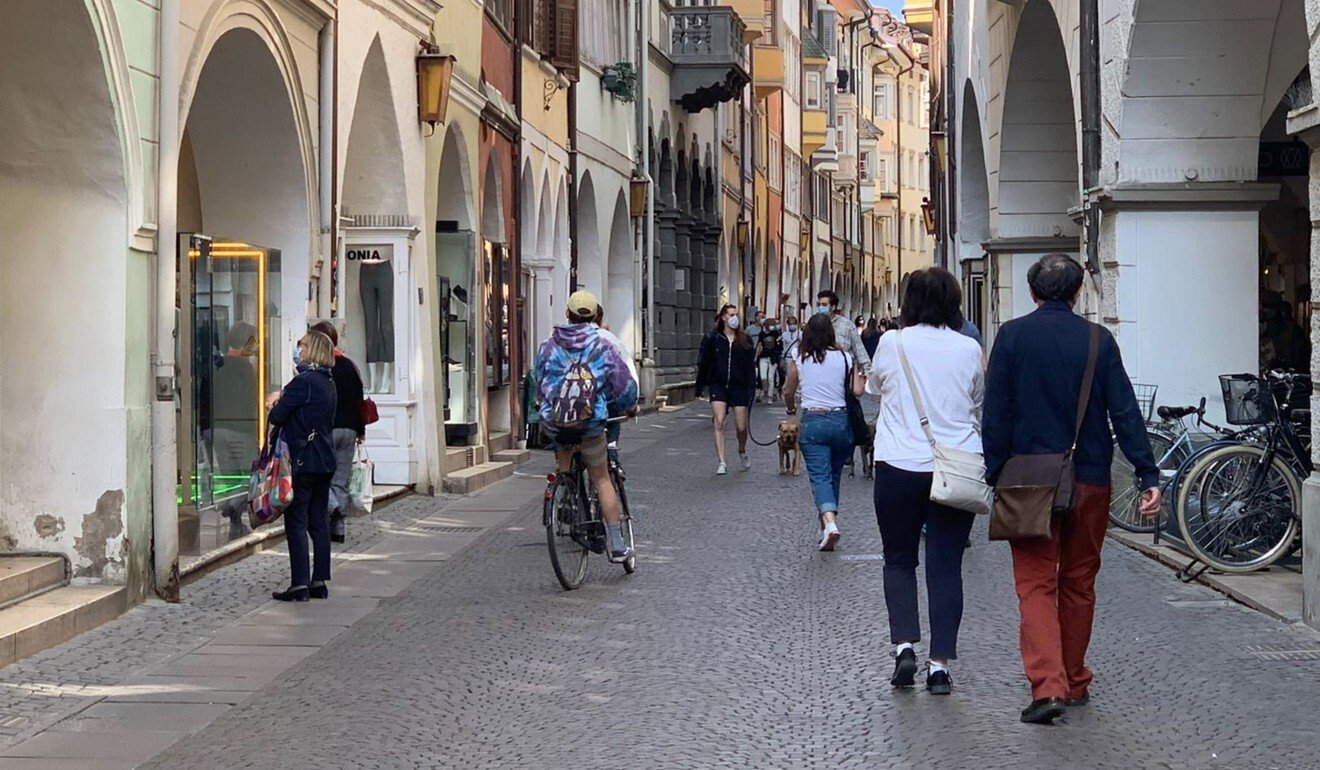
Coronavirus: as Europe gradually reopens, businesses remain pessimistic about recovery
- Rather than auguring the snapback in growth once touted by officials, the easing of lockdowns across Europe looks likely to herald a tough slog
- The wreckage to economies around Europe is already obvious, most emphatically in southern countries particularly hit from the outbreak
Rather than auguring the snapback in growth once touted by officials, those tentative steps look likely to herald a tough slog – particularly as long as the pandemic remains a threat to public health.
“There’s a widely accepted view that this is the bottom and we’re going to fly back in terms of growth,” said HSBC economist James Pomeroy. “The growth rate will probably bottom out in the second quarter, but don’t expect things to get back to normal any time soon.”
How will European tourism survive the coronavirus pandemic?
The wreckage to economies around Europe is already obvious, most emphatically in southern countries particularly hit from the outbreak and whose ability to respond is limited by wide budget deficits and large piles of debt.
The Commission forecasts slumps exceeding 9 per cent this year in Italy, Spain and Greece, compared to a 6.5 per cent drop in Germany.
That gloomy outlook still factors in an impending pickup in activity that will begin this month as lockdowns start to thaw.
“It would be naive to assume that once we stop the lockdown, everything will be just back to normal,” said Guntram Wolff, the director of the Bruegel think tank in Brussels.
“We are looking here at the resumption of some economic activity,” he said. “But a lot of businesses, a lot of sectors will remain heavily affected, including tourism, restaurants, everything in the service sector where you have personal interactions.”
France's Covid-19 tracing app expected to enter testing in week of May 11
An overarching problem facing officials is that until a vaccine is found and administered, people are likely to keep avoiding each other and will consume less.
In Europe’s five largest economies, 40 per cent or more of respondents in a YouGov survey said they are fearful of catching the virus. Many businesses also cannot enforce social-distancing measures without forsaking a significant portion of revenue.
“For many shops and restaurants, it’s a big problem,” said Rainer Neusius, who runs Zaemae, a sustainable fashion boutique in Zurich. “The rules mean fewer customers, and that’s not lucrative.”
Germany casts doubt on US claims that Covid-19 originated in Chinese lab
That has been the struggle in Denmark and Sweden, where demand has stayed sluggish even as governments there lift restrictions that were already much looser than elsewhere. HSBC’s Pomeroy notes that Swedish restaurants are seeing a 70 per cent drop in sales.
“If that’s the dream, essentially, that other countries are aiming to get back to in June, it’s still an economy that’s having a massive recession,” he said.
More damage may follow in the wake of businesses that choose not to bother reopening even if they are allowed to. That is the situation facing Sergio Coppola and his wife Franca, who own and let out a restaurant in Monterotondo, north of Rome, which will stay shut for the foreseeable future because of social-distancing restrictions.

“We’d have to cut the number of tables in half, and don’t even know how many people would actually come,” he said. “For some, the best option is to close everything to cut costs, and hope you’ll be able to reopen someday.”
Back in Spain, where the hostelry business had been riding high before the pandemic amid robust growth and record tourism numbers, entrepreneurs face similar tough choices on whether to resume operations. Fernando Lasala reckons social distancing will keep his small restaurant in Madrid shut for months to come.
“For me to turn a profit, I have to have the bar full at lunch and dinner,” he said. “In such a small place, it’s impossible to open.”




